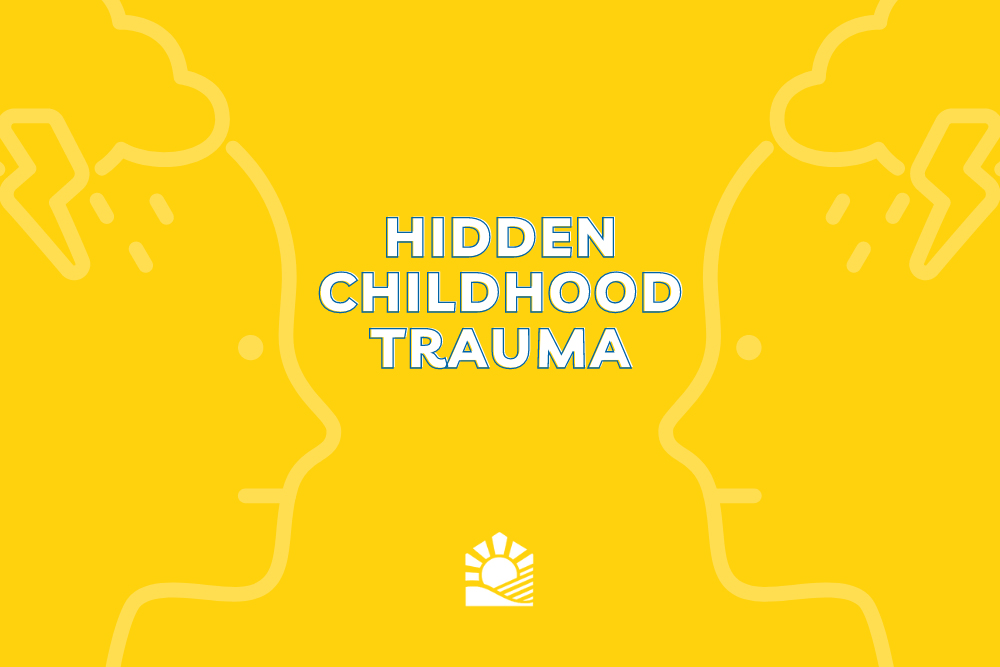Read the latest and greatest from our team
of incredible specialists.

Beach House Recovery Center » Blog » Signs of Repressed Childhood Trauma in Adults
At various times in your life, have you felt uncomfortable being around specific places, people or situations without being able to pinpoint why? Maybe something that happened to you in the past is triggering this reaction.
Some people who experience trauma at an early age suppress the memory, pushing it into their subconscious so they can continue living their lives. Later, the repressed childhood trauma can reemerge, causing you to have problems coping.

Of course, trauma can affect your life at any age. However, it can be especially hard on young children, who lack the emotional maturity necessary to help them cope with situations such as bullying, violence or divorce.
Childhood trauma can impact your brain’s ability to retain new memories. Experts sometimes classify repressed memories from childhood trauma as a type of dissociation – in other words, you’ve separated yourself from the past in an attempt to cope.
In the short term, adverse childhood experiences might cause a more immediate reaction such as acting out in school or struggling to make friends. As repressed childhood trauma comes to the surface in adulthood, it can manifest in issues like substance abuse, mental health disorders, self-harm or suicidal thoughts and behaviors.
It can be challenging to determine if you have repressed childhood trauma because some of the leading warning signs overlap with other mental health conditions. However, here’s what you can look for.
If you have unaddressed trauma, you may find yourself going from happy and relaxed to irrationally upset at the slightest trigger. Often, erratic mood swings result when you encounter something that reminds you of some aspect of your repressed childhood trauma.
Traumatized people have an overactive fight-or-flight response due to biological changes in the brain regions responsible for governing decision-making and memory. Due to your experiences, your past and your present may blend in your mind until it’s hard to separate them. That’s why you might feel tense or nervous, even when you are safe in your home.
Sometimes, repressed childhood trauma causes people to grow up with an intense fear of abandonment. You could fear being alone or quickly become dependent on other people to feel happy. The idea of someone leaving you, even for a short period, might make you anxious and agitated.
Immature reactions are characteristics of repressed childhood trauma. If you often find yourself reacting to everyday stressors by throwing tantrums or being stubborn, these responses could indicate you have deeply buried memories.
Repressing trauma requires a lot of mental and emotional energy, which could leave you exhausted and make you want to withdraw from the world.
At Beach House, our integrated treatment program incorporates a blend of holistic and clinical methods to alleviate the symptoms associated with trauma. Often, our professional clinicians find adverse childhood experiences are the underlying cause of addiction. To request confidential help, contact our admissions counselors today.
Whether you’re researching for yourself or a loved one, Beach House can help. We understand that this is a serious time in your life and that the treatment center you choose matters. We want you to feel comfortable and empowered to make the right decision for yourself, a friend, or a family member. This is why a counselor is waiting and available to answer your questions and help put your mind at ease regarding the next steps. Many of the staff at Beach House have walked in your shoes. If you feel you’re ready or want more information about how to help a loved one, we can help today. You can also learn why we are voted the #1 rehab for addiction treatment in Florida.
We accept most major insurance plans and can verify your benefits quickly and confidentially.
We’re committed to helping you access the care you need, our admissions counselors can guide you through your coverage options and available resources.





"*" indicates required fields